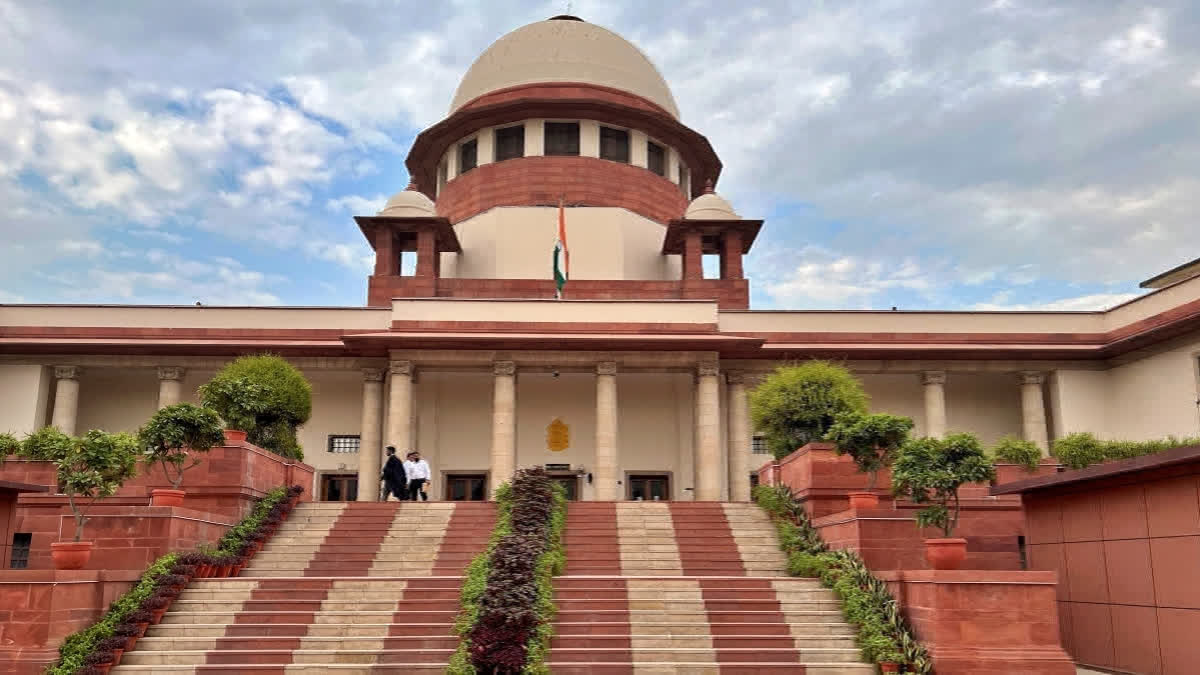New Delhi: Solicitor General Tushar Mehta Thursday told the Supreme Court that genetically modified (GM) oil has been used in India for decades and the only question is whether it is grown here or imported from other countries.
A bench comprising justices B V Nagarathna and Sanjay Karol heard submissions from Attorney General R Venkataramani, Solicitor General Tushar Mehta, representing the central government, and advocates Prashant Bhushan and senior advocate Sanjay Parikh, who represented the petitioners.
Mehta said the government is not using thousands of acres of land for open testing of GM rather only 500 sq. mt. land is being used, and without this testing it cannot be put for public consumption. Mehta stressed that genetically modified (GM) oil has been used in India for decades and the only question is whether it is grown here or imported from other countries, and stressed that the nation will be harmed if testing is not allowed.
“Mustard is the most important edible oil of India. Approximately 55-60% edible oil in India is imported. Those who are importing into India are interested that our nation does not start growing it…”, said Mehta, adding that genetic technology is important in meeting emerging challenges in Indian agriculture and for ensuring food security while reducing foreign dependency.
Mehta said total edible oil demand of India was 24.6 million tonnes in 2021, with domestic availability of 11.1 million tonnes in 2021, and in the same year 54% of the country's oil demand was met through import. Mehta said people are consuming imported oil and the petitioners are attempting that it is not grown indigenously.
In 2022-23, 155.33 lakh tonnes, which is over 55% of our total edible oil demand was met through imports, said Mehta, adding that Rs 1.54 lakh crore was spent on purchasing the oil from other countries. Mehta said in the vaccine matter, the government showed everything to the court and nothing to be hidden, but strangers cannot come and sit in appeal over experts conducting trials.
Justice Karol said it is somewhere documented that field tests have shown that increase of yield is only by 1%, and, noting that there is increase in demand for edible oil, pointed out that Bhushan had argued that even if the government goes for trial the yield increase is only 1 %.
After hearing submissions, the apex court reserved the judgment and directed the parties to file written submissions by January 22. On Wednesday, the apex court, observing that the issue of genetically modified crops is very technical and scientific, said it will decide a plea on environmental release of GM mustard on the basis of what is good for the country. Earlier, the court had questioned the Centre, why reports of the court-appointed Technical Experts Committee (TEC) on biosafety of genetically modified (GM) crops were not looked into by the Genetic Engineering Appraisal Committee (GEAC).
The apex court had asked the AG whether the GEAC or a sub-committee of experts ever considered the reports filed by TEC before the October 25, 2022 decision to approve the environmental release of transgenic mustard hybrid DMH-11.
The apex court was hearing separate pleas by activist Aruna Rodrigues and NGO ‘Gene Campaign’ seeking a moratorium on the release of any genetically modified organisms (GMOs) into the environment pending a comprehensive, transparent and rigorous biosafety protocol in public domain. The petitioners had emphasized that this protocol should be conducted by independent expert bodies.
Read More


